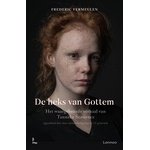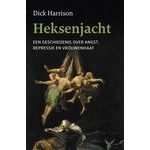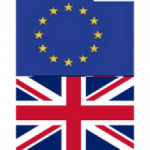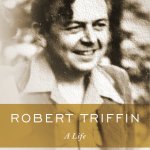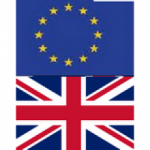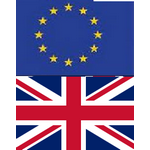The University Foundation organizes lots of activities for the members of the Club. Below you can see short reviews of some past activities. A more complete list can be seen on the French or Dutch web pages.
On Monday 16 June 2025 at 5.30 pm, the University Foundation is organising a debate (N/F) on the budget problem in Belgium, with Prof. Koen Geens (KU Leuven) as speaker. The presentation will be introduced by Prof. Dirk Heremans (KU Leuven) and comments will be given by Prof. Eric De Keuleneer (ULB and University Foundation).
Wednesday 27 November 2024 at 5 pm : Debate (in English) “Self-concept and emotions: What has culture got to do with it?” with prof. Batja Mesquita (KULeuven) and prof. Shinobu Kitayama (University of Michigan). Introduction by prof. Philippe Byosière (Professor emeritus Doshisha University Kyoto, Visiting professor Management Centre Innsbruck, member of our Club).
For more information click "Read more".
In the series “Members have their say…” Professor Frederic Vermeulen (KU Leuven) came to talk on Monday November 18, 2024, about his first historical novel "De heks van Gottem. Het waargebeurde verhaal van Tanneke Sconyncx” (The witch of Gottem) (Lannoo Publishers, 2024). It tells the story of his ancestor Anna De Coninck/Tanneke Sconyncx, who was accused of witchcraft at the end of the 16th - beginning 17th century. His talk was be preceded by a presentation by Professor Dick Harrison (Lund University), who recently published the non-fiction book Heksenjacht. Een geschiedenis over angst, repressie en vrouwenhaat (Witch hunt. A history about fear, repression and misogyny) (Omniboek, 2024). The event took place in English.
On April 24, 2024 at 6 p.m. the University Foundation, in collaboration with the Royal Military Academy and the Egmont Institute, is organizing a debate (Dutch and Fraench) on the challenges for geostrategy and for world order in the international election year 2024. The debate will be introduced by Lt-Col Tom Simoens , RMA, Col (GS) Peter Philipsen, RMA, and Ambassador Ghislain D’hoop, FPS Foreign Affairs, with Prof. Dr Alexander Mattelaer, Egmont Institute, as moderator
For more information and for the registration form click "Read more".
The members of th Club of the University Foundation were invited to the New Year's reception on Thursday 25 January 2024.
On this occasion professor em. Marc Boone (UGent) and professor Catherine Lanneau (ULiège) gave a talk on the painting hanging in the Foundation near the entrance of the restaurant.
In 2022 the University Foundation started a series of panel debates in its new “Speakers' Corner” series, which gives the floor to British speakers and speakers from the EU on UK-EU affairs. In cooperation with TEPSA, the Egmont Institute and the EU-UK Forum, the recent debate was on Wednesday December 13 at 6 pm (followed by a reception) The topic: INSIDE OUT: HOW “GLOBAL” IS THE UK’S FOREIGN AND DEFENSE POLICY AND HOW “GEO-POLITICAL” IS THE EU’S? is discussed by Lord Ricketts, Ambassador Angelina Eichhorst en Baron Frans van Daele, and the discussion was moderated by Professor Dr Alexander Mattelaer.
The debate was followed by a reception.
More information: click "Read more" below.
ChatGPT and Co in higher education: to be cheered or feared ?
The Ethical Forum 2023 took place on Thursday, December 7, 2023 from 2 to 6 pm, at the University Foundation.
Wednesday May 31, 2023 ar 5 pm.: Debate on "The future of the International monetary system" at the occasion of the publication of the book "Robert Triffin: A Life” by Ivo MAES (Prof. UC Louvain). Debate with Eric de Keuleneer (Chair), Ivo Maes (Robert Triffin Chair, Université catholique de Louvain), Jacques de Larosière (former Managing Director of the IMF), Peter Praet (former member of the ECB Executive Board (tbc), Elena Flores (Deputy-Director General, DG ECFIN, European Commission), Francesco Papadia (former Director-General, ECB) .
For further information click "Read more".below.
In 2022 the University Foundation started a series of panel debates in its new “Speakers' Corner” series, which gives the floor to British speakers and speakers from EU on UK-EU affairs. The recent activitey took place on May 15, 2023, at 6 pm and dealt with the question "The UK and the EU in a changing world. Time for a new departure?". Panelists are - Professor Anand Menon (King’s College London), Andy Bounds (lFinancial Times) and Stefaan De Rynck (Head of the Commission representation in Belgium and former senior adviser to BREXIT negotiator Michel Barnier). Moderator is Paul Adamson, chairman of the UK/EU Forum. Concluding re marks were formulated by Jim Cloos, SG of TEPSA and Senior Associate Fellow of the Egmont Institute. This activity was organized in collaboration by the University Foundation, the EU/UK Foundation, TEPSA (Trans European Policy Studies Association), and the Egmont Institute.
Debate iollowed by a reception.
In 2022 the University Foundation starts a series of panel debates In its new “Speakers' Corner” series, which will give the floor to British speakers on EU and UK-EU affairs. It is organized in collaboration with the Trans European Policy Studies Association (TEPSA). The first activity in this series takes place on Wednesday 23 March 2022 at 6 pm, and will deal with “WHAT THE PAST TELLS US ABOUT THE FUTURE: UK - EU RELATIONS”. The panel consists of Sir Stephen Wall, Dr Martin Westlake and Mr. Didier Seeuws. Moderator: Mr Jim Cloos.
For more information click "Read more".



